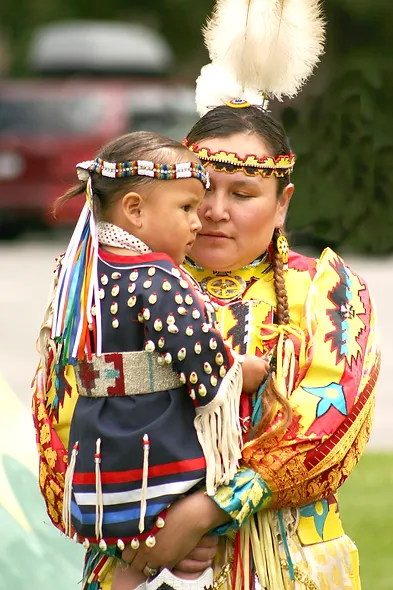PIVOTAL COLLABORATION
Our History
In May 1994, four North Dakota Nations – the Mandan Hidatsa Arikara Nation, the Standing Rock Sioux Tribe, the Spirit Lake Sioux Tribe, and the Turtle Mountain Band of Chippewa – embarked on a pivotal journey to address common child welfare issues. Collaborating with the North Dakota Department of Human Services Children and Family Services Division, Casey Family Programs, and the North Dakota Indian Affairs Commission, they identified a critical need for specialized training.
SHARED VISION
Empowering Child Welfare Professionals
This Nation-to-Nation collaboration led to the creation of essential tools and resources aimed at enhancing the child welfare process. Our vision was to develop comprehensive training programs that would benefit all stakeholders, including foster and adoptive parents, tribal courts, and law enforcement. This shared commitment culminated in the establishment of the Native American Children and Family Services Training Institute in 1995, which was later renamed the Native American Training Institute (NATI) in 2001.

SUPPORTING NATIVE COMMUNITIES
Our Purpose
At NATI, we are dedicated to empowering professionals who work with Native American children and families through culturally relevant training and curriculum packages. Our extensive training programs cover vital topics such as foster parenting, wraparound services (community training, care coordinator training, and WRIT training), youth relationship building, HIV/AIDS awareness, the Indian Child Welfare Act (ICWA), cultural competency, and historical trauma.
FOSTERING COLLABORATION
Our Work
We also host a variety of workshops and conferences throughout the year, including the prominent North Dakota Indian Child Welfare Act conference. Additionally, we organize mini conferences that bring together state and tribal human services professionals and other experts.
Our commitment to excellence extends to offering personalized or specialized training upon request in areas such as strategic planning, tribal funding access for child welfare programs, parenting, and program planning.
